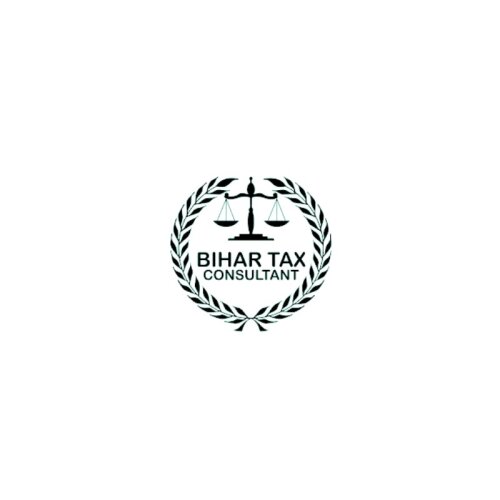Best Debt Capital Markets Lawyers in Patna
Share your needs with us, get contacted by law firms.
Free. Takes 2 min.
List of the best lawyers in Patna, India
About Debt Capital Markets Law in Patna, India
Debt Capital Markets (DCM) represent that segment of the financial market where companies, governments, or other organizations raise funds by issuing debt instruments such as bonds, debentures, or notes. In Patna, like the rest of India, DCM activity plays a crucial role in providing businesses and public infrastructure projects with access to long-term financing. The city’s growing business environment, alongside increasing infrastructure investments, means legal oversight is essential to ensure compliance, investor protection, and regulatory adherence in every transaction.
Why You May Need a Lawyer
Navigating the world of Debt Capital Markets involves complex legal processes and regulatory requirements. Individuals or organizations in Patna may need a debt capital markets lawyer for several reasons:
- Structuring and executing bond issuances or debenture placements
- Complying with Securities and Exchange Board of India (SEBI) regulations
- Drafting and reviewing offer documents, prospectuses, and disclosure statements
- Conducting due diligence before large-scale investments or borrowing
- Advising on listing debt instruments on recognized stock exchanges
- Resolving disputes related to defaults, repayment terms, or investor rights
- Assisting with regulatory inspections, investigations, or penalties
- Helping corporations, municipalities, and public sector undertakings raise funds
Local Laws Overview
Debt Capital Markets in Patna are governed by a framework of national and state laws. The most important regulatory bodies are the Securities and Exchange Board of India (SEBI) and the Reserve Bank of India (RBI). Some key aspects relevant to Patna include:
- SEBI Regulations: SEBI (Issue and Listing of Non-Convertible Securities) Regulations, 2021 set forth disclosure norms, eligibility criteria, and listing obligations for corporate debt issuance.
- Companies Act, 2013: This Act governs how Indian companies, including those in Patna, can issue debentures and other debt instruments, stipulating conditions on security, investor rights, and reporting.
- RBI Directives: The RBI issues guidelines for bonds released by banks, non-banking finance companies (NBFCs), and for government securities.
- State and local compliance: Bihar state laws, municipal corporation guidelines, and other local regulations may apply, especially for municipal bonds or projects.
- Taxation: Income Tax Act, 1961 and Goods and Services Tax (GST) provisions impact returns, withholding, and structuring of debt instruments.
Frequently Asked Questions
What is a debt instrument?
A debt instrument is a financial tool that allows an entity to borrow funds with a promise to repay, usually with interest, such as bonds or debentures.
Do Patna businesses need SEBI approval to issue corporate bonds?
Yes, companies must adhere to SEBI regulations and obtain necessary approvals before issuing or listing debt securities in India, including in Patna.
Can local governments in Patna raise funds through debt capital markets?
Yes, municipalities and urban local bodies can issue municipal bonds, subject to state and national guidelines.
What legal documents are required for a bond issuance?
Essential documents include offer letters, prospectuses, trust deeds, disclosure statements, and board/shareholder resolutions, among others.
How are disputes in debt capital markets resolved?
Disputes can be resolved through negotiation, mediation, or formal legal processes in courts or arbitral tribunals. Specialized tribunals like the Securities Appellate Tribunal (SAT) may also be involved.
Are individual investors protected by law in Patna’s debt capital markets?
Yes, SEBI and other regulators mandate disclosures, ratings, and investor protection measures to ensure fair play and reduce risk for all investors.
What are the risks of Not complying with DCM regulations?
Non-compliance can lead to penalties, legal action, delisting of instruments, or investor claims against the issuer and its management.
Can NBFCs in Patna issue debentures?
Yes, Non-Banking Financial Companies (NBFCs) can issue various types of debentures, provided they adhere to RBI and SEBI rules.
Do I need a lawyer to invest in debt instruments?
While it is not mandatory, consulting a lawyer is highly advisable to review documentation, assess risks, and ensure compliance.
What is the process for listing debt instruments on stock exchanges?
Issuers must prepare and file necessary documents, obtain ratings, comply with listing requirements of exchanges like BSE or NSE, and follow SEBI’s procedural mandates.
Additional Resources
Several organizations and regulatory bodies can offer guidance and information related to Debt Capital Markets in Patna:
- Securities and Exchange Board of India (SEBI)
- Reserve Bank of India (RBI) - Regional Office, Patna
- Bombay Stock Exchange (BSE) and National Stock Exchange (NSE) regional representatives
- Registrar of Companies (ROC), Bihar & Jharkhand
- Bihar State Financial Corporation
- Indian Banks’ Association (IBA)
- Legal Aid Cells and Bar Associations in Patna
Next Steps
If you believe you need legal guidance concerning Debt Capital Markets in Patna, consider the following steps for a smooth process:
- Outline your objectives and gather all relevant documentation
- Identify a local lawyer or law firm specializing in capital markets, securities, and financial regulation
- Schedule an initial consultation to discuss your requirements and potential strategies
- Stay informed about the latest legal and market developments
- Maintain compliance throughout by conducting regular legal reviews and audits
- For urgent regulatory queries, contact SEBI, RBI, or the relevant stock exchange for direct assistance
Professional legal advice ensures that your participation in the Debt Capital Markets is secure, compliant, and designed to meet your financial goals in Patna.
Lawzana helps you find the best lawyers and law firms in Patna through a curated and pre-screened list of qualified legal professionals. Our platform offers rankings and detailed profiles of attorneys and law firms, allowing you to compare based on practice areas, including Debt Capital Markets, experience, and client feedback.
Each profile includes a description of the firm's areas of practice, client reviews, team members and partners, year of establishment, spoken languages, office locations, contact information, social media presence, and any published articles or resources. Most firms on our platform speak English and are experienced in both local and international legal matters.
Get a quote from top-rated law firms in Patna, India — quickly, securely, and without unnecessary hassle.
Disclaimer:
The information provided on this page is for general informational purposes only and does not constitute legal advice. While we strive to ensure the accuracy and relevance of the content, legal information may change over time, and interpretations of the law can vary. You should always consult with a qualified legal professional for advice specific to your situation.
We disclaim all liability for actions taken or not taken based on the content of this page. If you believe any information is incorrect or outdated, please contact us, and we will review and update it where appropriate.














